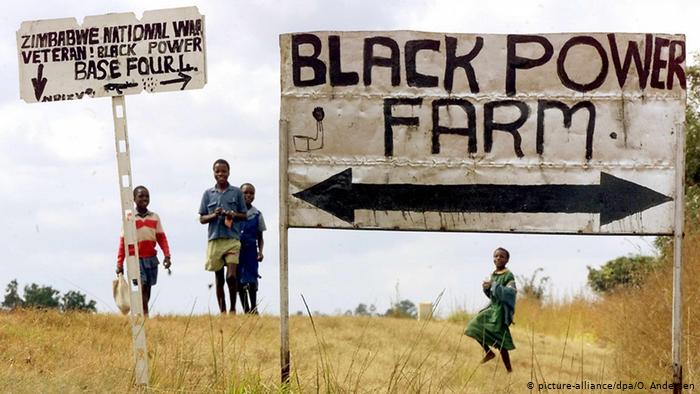By John Mhazo
Zimbabwe’s land reform programme is irreversible and the country is expected to achieve food security by 2030 owing to restored cooperation between former farm owners and the Government of Zimbabwe.
In a joint statement, the Minister of Lands, Agriculture, Water and Rural Resettlement, Dr Anxious Jongwe Masuka and the Minister of Finance and Economic Development, Mthuli Ncube said Government is not reversing the country’s land policy but seeks to secure the country’s food security by 2030 through collaborating with former farm owners.
“Government’s highest priority in Agriculture is to increase production and productivity through the collaborative efforts of all Zimbabweans,” read the statement.
President Emmerson Mnangagwa signed the Global Compensation Deed (GCD) on 29 July 2020, which in accordance with the country’s Constitutional provisions on Bilateral Investment Treaties (BITs) seeks to compensate former farm owners whose land was compulsorily acquired for resettlement; downsize underutilized commercial farms; and end illegal occupation of farms on which Government had already issued offer letters.
A Government official who spoke to this publication on condition of anonymity said sooner or later Government had to address the country’s land policy issue. While access to productive land was one of the reasons why people went to war, a new need to ensure the country’s food security has arisen and must be urgently addressed.
“It is high time Government put the land issue to rest, and compensating former farmers who had made major infrastructural improvements on their pieces of land is a starting point,” said the official.
Same also said that the next step for Government is to comprehensively educate the nation on this position because a majority of people think Government is reversing the land policy.
“People must understand that the country’s land reform programme is irreversible. However, we must admit that some of our people illegally settled on productive commercial land. Some of our people with these pieces of land have little to zero commercial farming knowledge and this has been a blow to efforts of achieving food security and eradicating poverty in line with President Mnangagwa’s vision 2030,” said the official.
In the joint statement, Minister Masuka reiterated that collaborating with former farm owners was rationale and noble because of their historical knowledge of commercial farming which could help turn around the country’s economy,
“Going forward…the highest priority in Agriculture is to increase production and productivity through collaborative efforts…this includes skills transfer from former farm owners to resettled farmers,” said Masuka.
Minister Masuka also said that Government was deeply concerned and opposed to the resurgence of illegal occupation of productive farms which had hampered agricultural productivity.
“These illegal farm occupations are taking place in complete disregard of offer letters which Government had issued to the affected farmers. Such disorderly behavior among our citizens is indiscipline of the highest level which Government does not tolerate…it should stop forthwith,” reiterated the Minister.
Meanwhile, the Ministers have invited former farm owners to apply in writing for restoration of title deeds with 99 years leases to their farms which were compulsorily acquired from them for resettlement.
Where circumstances presently obtaining on the ground permit restoration (present circumstances could be where a previously commercial farm is underutilized or a case of multiple ownership), the Government will grant them title by revoking offer letters of resettled farmers.
However, where present circumstances obtaining on the ground makes it impractical for reallocation of title (such land would currently be economically productive and reallocation would hamper economic activity), such a former farm owner would be offered with alternative land or compensation based on the same valuation methodology as was applied under the GCD.
Minister Masuka also argued that, the above scenarios would not be at the expense of resettled farmers currently occupying the pieces of land as those affected by restoration of title would be offered alternative pieces of land elsewhere to pave way for economic productivity.




